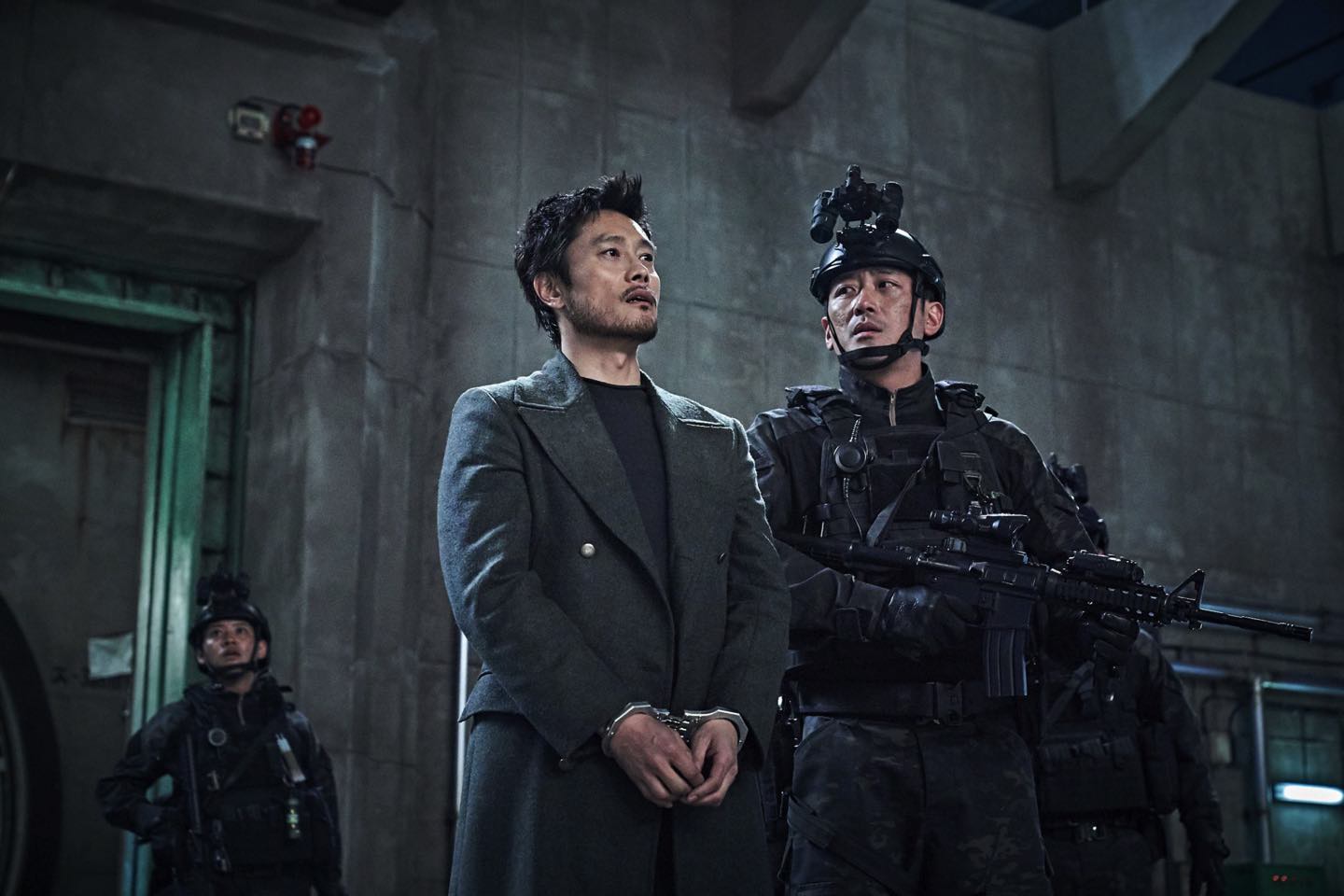
South Korea is no stranger to disaster movies. 2009’s Haeundae saw a tsunami destroy Busan, 2016’s Pandora imagined a Fukushima Daiichi-esque nuclear disaster in Korea, and 2019’s Exit comedically depicted a toxic gas cloud engulfing Seoul.
None of these disaster movies feels as epic as Ashfall (a.k.a. Baekdusan) though. In Ashfall, an ensemble cast race to save the Korean peninsula from volcanic armageddon, while also fending off meddlesome foreign interests. The film feels like a big-budget Hollywood blockbuster, replete with common tropes. Yet, it retains a distinctively Korean flair with its geopolitical context.
Baekdu Goes Boom

With a purported US$17 million budget (large by Korean standards), Ashfall went all-out in recruiting A-listers. Box office king Ha Jung-woo plays Captain Jo In-chang, a South Korean Explosive Ordnance Disposal (EOD) technician. Just as Jo and his wife Ji-young (played by K-pop superstar Bae Suzy) are expecting a baby, Mount Baekdu in North Korea erupts. Earthquakes ravage both Koreas, and ash begins to choke the sky. If supervolcano Baekdu keeps erupting, the entire Korean peninsula will die.
We then meet Robert Kang Bong-rae, a Korean-American scientist played by Ma Dong-seok—who usually portrays beefy tough guys, but doesn’t have a single fight scene in Ashfall. Hauled in to advise South Korea’s government, Kang suggests a 600 kiloton nuclear explosion beneath Baekdu will stop its eruptions. There’s a small wrinkle. South Korea doesn’t have nukes, and Baekdu is on the far side of North Korea along the Chinese border.
Rather conveniently though, North Korea has nukes. South Korea’s government dispatches Captain Jo and a team of special forces to make contact with a North Korean agent named Ri Joon-pyeong (played by Lee Byung-hun), who knows the nukes’ location and can help the Southerners reach Baekdu to complete the mission. However, the airdrop into North Korea goes wrong and all the special forces die. This leaves Captain Jo and a ragtag band of explosives technicians to deal with the wily Ri, who has his own agenda.
Tropes, from Hollywood to Seoul

Ashfall draws from the same tradition as epic Hollywood disaster flicks like Armageddon and Deep Impact. The formula of an unlikely grouping of heroes using nuclear weapons as a deus ex machina against a massive disaster has been done to death in American film and television. We see this formula play out to the letter in Ashfall, with mass evacuations, Presidential announcements, ridiculously large explosions, and ultimate personal sacrifices to boot.
Such disaster films don’t aspire for originality or cinematic innovation though; their only aspiration is to entertain. On this front Ashfall performs decently. If you’re willing to suspend disbelief around nukes being able to solve all of life’s problems, the film’s plot has good pacing, entertaining action sequences, and enough twists to keep your attention. Captain Jo and Agent Ri also have good chemistry; their reluctant partnership becomes fodder for sprinkles of comic relief that keep Ashfall from feeling too bleak. While at some points the CGI of Baekdu’s eruptions can feel a bit much, it’s quite a treat to see post-apocalyptic scenes of North Korean cities (a first for any movie).
And More Tropes… From Baekdu To Halla?

Even if Ashfall borrows heavily from Hollywood formulas, it adds heavy coatings of Korean flavor due to its geopolitical context. The film belongs to a storied repertoire of South Korean dramas and movies featuring North Korea, a sub-genre that has its own tropes.
Captain Jo and Agent Ri are the latest rendition of a South-North odd couple overcoming differences to help both Koreas, something we’ve seen in countless K-movies. In Ashfall, Jo and Ri must ward off American and Chinese designs on Korea; there’s even a scene where Jo stands between Chinese and American troops and yells for them to stop bickering. Such depictions of boorish Americans and Korea as the victim of constant foreign interference also occur in many other Korean movies and dramas, and perhaps reflect real-world anxieties.
Furthermore, Mount Baekdu is sacred to the two Koreas. Both North and South Korea’s national anthems mention the mountain, and it’s a constant fixture in Northern propaganda and Southern socio-political discourse. Centering a movie around Baekdu taps into its status as a powerful reminder of a millenia-old Korean history and culture that transcends North-South divisions.
All said, Ashfall might be a trope-ridden blockbuster, but it’s one with geopolitical significance. Even if the film draws from Hollywood formulae, it uses them to tell a story that trumpets Korea’s national identity—even at the expense of Uncle Sam. With its themes of North-South cooperation, Ashfall not only entertains, but also keeps the dream of Korean reunification alive amid recent difficulties. Advocates for reunification can only hope the Korean peace process doesn’t suddenly explode like Baekdu does in Ashfall.
• • •
Ashfall (Korean: 백두산, a.k.a. Baekdusan)—South Korea. Dialog in Korean. Directed by Lee Hae-jun and Kim Byung-seo. First released December 19, 2019. Running time 2hr 8min. Starring Ha Jung-woo, Bae Suzy, Lee Byung-hun, Ma Dong-seok, Jeon Hye-jin.
Ashfall screens in North American and German theaters with subtitles starting January 3, 2020.
